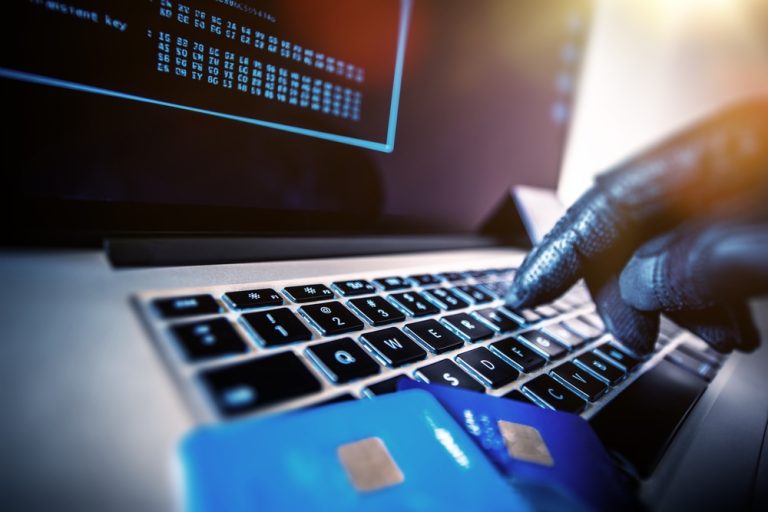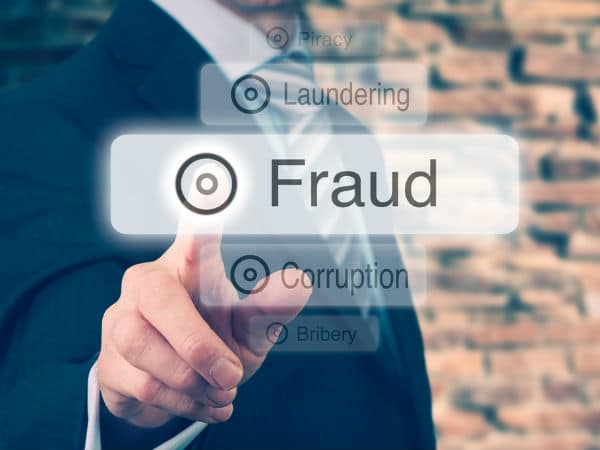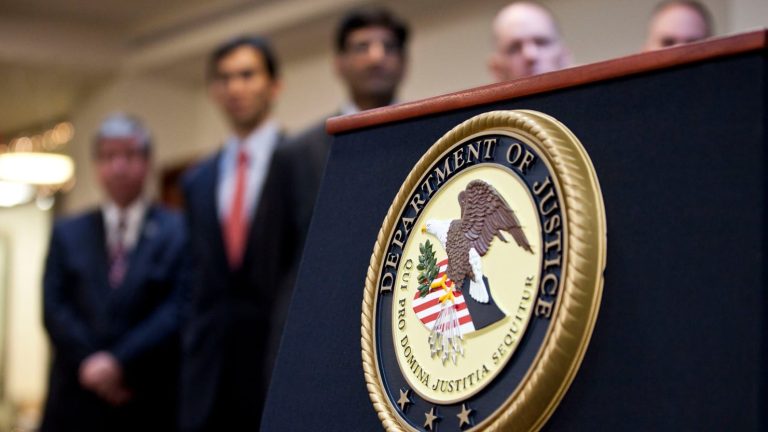Assistant Attorney General Matthew G. Olsen Delivers Remarks at Second Annual Counterterrorism Law Enforcement Forum
Good morning. Thank you all for joining us for the second meeting on the Counterterrorism Law Enforcement Forum. It is great to be here with so many distinguished colleagues to discuss these important issues.
I’ll add that I am especially pleased to be here in Oslo, as an Olsen, and someone who takes a lot of pride in my Norwegian heritage. For me, Oslo is a special place. It is also a place that has been touched by the violence and destruction of domestic violent extremism. So, it is poignant to be here working on this important challenge, with all of you.
Last May, we gathered in Berlin, for our inaugural meeting. I departed the forum daunted by the scale of the problem, but heartened to see the partnership of so many likeminded countries.
I returned to D.C. from Berlin on a Thursday. Two days later, on Saturday afternoon, I received the first alerts from the FBI that there was an active shooter in Buffalo, New York. What we would come to learn over the next hours and days was that an individual espousing white supremacist ideology took a semiautomatic weapon into a grocery store and murdered 10 people.
This tragedy in Buffalo – just over one year ago – is part of an alarming trend.
Over the last few years, our country has seen the threat posed by domestic terrorism and hate crimes increase. At the end of 2019, the FBI had approximately 1,000 domestic terrorism investigations; by the end of 2020 that number increased to 1,400 investigations. In 2021, the number of FBI investigations grew to 2,700, more than doubling from the prior year.
In particular, we face an increasing threat from racially and ethnically motivated violent extremist groups, including white supremacists and anti-government groups.
In the United States, the most significant domestic terrorism threat is posed by lone actors or small cells, who are often motivated by a mix of socio-political, ideological, and personal grievances. These individuals pose serious challenges for law enforcement for several reasons.
First, because of the insular and often rapid nature of their radicalization – which often occurs online – and then mobilization to violence, there are fewer opportunities to detect and disrupt plots before they occur. Second, once mobilized to violence, domestic terrorists often choose soft targets such as houses of worship, retail locations and mass public gatherings. These targets, by their nature, are very difficult to defend.
Third, in the United States, these actors have access to easily available, extremely powerful weapons. The simple truth is that the ability of violent extremists to acquire military-grade weapons in our country contributes to their ability to kill and inflict harm on a massive scale. A recent article in The Washington Post noted that about a shocking number of Americans – one in 20 adults, or roughly 16 million people – own at least one AR-15 assault rifle.
We know from experience that these factors, when combined, can be a deadly combination. And this poses a daunting challenge to our law enforcement and security agencies.
I recognize that I have just painted a pretty bleak picture. So let me turn to what we are doing about it at the U.S. Department of Justice.
The investigation and prosecution of domestic violent extremists (DVE) is one of our highest priorities. Last year, I established a new Domestic Terrorism (DT) Unit within the National Security Division, which I lead. This cadre of experienced prosecutors works to ensure that domestic terrorism cases are appropriately supervised and supported across the United States. The unit also provides guidance and training to investigators and prosecutors around the country on how to navigate the challenges in this area.
We have streamlined and centralized how DVE-related cases in prosecutor offices around the country are managed to increase our involvement and oversight. The department has also improved how we track domestic terrorism information and reporting. Those efforts have been key to developing a consistent approach driven by threat intelligence.
The DT Unit also coordinates closely with other components of the Justice Department to ensure we are using all of the tools in our arsenal to prevent, disrupt, and prosecute acts of domestic terrorism.
We have learned that, when it comes to racially and ethnically motivated domestic terrorism – which includes some of the most significant attacks we’ve seen – some of our most powerful tools are federal hate crime statutes, which are handled by our Civil Rights Division. Those laws often carry higher penalties and can sometimes be a better match to the offence.
The Buffalo attack, which I mentioned earlier, is a good example of that. The Department of Justice is prosecuting the perpetrator of that attack as a hate crime and as an act of racially-motivated violent extremism.
This reflects a core aspect of our approach – which is that we are one team. And we need to work together to bring the full range of our tools to bear, including legal authorities that we haven’t traditionally thought of as terrorism authorities. These acts of violence not only terrorize the individual victims, they harm entire communities. We are committed to delivering justice and accountability, however we can.
Our focus on domestic violent extremism also comes in the wake of the January 6 attack on the United States Capitol. That was a singular event in American history and a wake-up call about the threat that domestic violent extremism poses to our fundamental democracy.
The January 6 investigation is the largest in the history of the Justice Department. We have arrested and charged more than 1,000 individuals who took part in the Capitol assault. Nearly 500 people have pled guilty or been convicted at trial.
We have brought serious charges, including seditious conspiracy against numerous defendants – members of extremist groups who plotted to disrupt the peaceful transfer of power in our country. Two weeks ago, the leader of the Oath Keepers, Stewart Rhodes, was sentenced to 18 years in prison for his role in seditious conspiracy. The federal judge who handed down the sentence included an enhancement for terrorism and said that Rhodes presented “an ongoing threat and a peril to this country, to the republic and the very fabric of our democracy.”
We believe our success in this case serves as a stark warning to those who would seek to violently attack our government and our democracy. It makes clear our determination that the rule of law will prevail.
It is important to be clear, the Department of Justice investigates violent extremists for their criminal acts and not for their beliefs or based on their associations, and regardless of ideology. In the United States, upholding our core values means respecting First Amendment rights and safeguarding the exercise of protected speech, peaceful protests, and political activity. We hold those rights sacred.
But when individuals or groups of individuals try to promote or impose an ideology through acts or threats of violence, those can be among the most dangerous crimes we confront as a society. When violent extremists seek to hurt others in the name of ideology – any ideology – we will use every tool we have to deter and disrupt plots, to keep people safe and to bring perpetrators to justice.
I’ve just spoken about what we are doing at the Justice Department to combat violent extremism. But we know we cannot do it alone. We are one part of a whole-of-government strategy to combat domestic terrorism. International law enforcement partnerships are also critical.
We have to be united in confronting domestic extremism within our countries. Collaboration and information sharing is essential to understanding and countering the threats that terrorist and violent extremist groups pose.
International partnerships are especially important where we observe transnational linkages in domestic violent extremism. We have seen some U.S.-based supporters of domestic terrorism attempt to establish links with likeminded foreign individuals and organizations. In some cases, U.S.-based domestic terrorists have traveled overseas to link up with counterparts who espouse the same beliefs.
These trends are one reason why international forums like this are so valuable. This is an opportunity to hear from foreign partners about the violent extremist groups and networks that are most concerning; where transnational linkages exist; how these actors are raising and moving funds; how groups are recruiting and training new members; how they are communicating and spreading their messages and propaganda; and the sources and drivers of radicalization to violence.
We hope the sessions over the next two days are the beginning of many conversations to come, as we work together to strengthen our partnerships and to keep our communities safe.
Thank you.
Speaker: Matthew G. Olsen, Assistant Attorney GeneralTopic(s): Domestic TerrorismNational SecurityComponent(s): National Security Division (NSD)
Updated June 7, 2023Original Article





